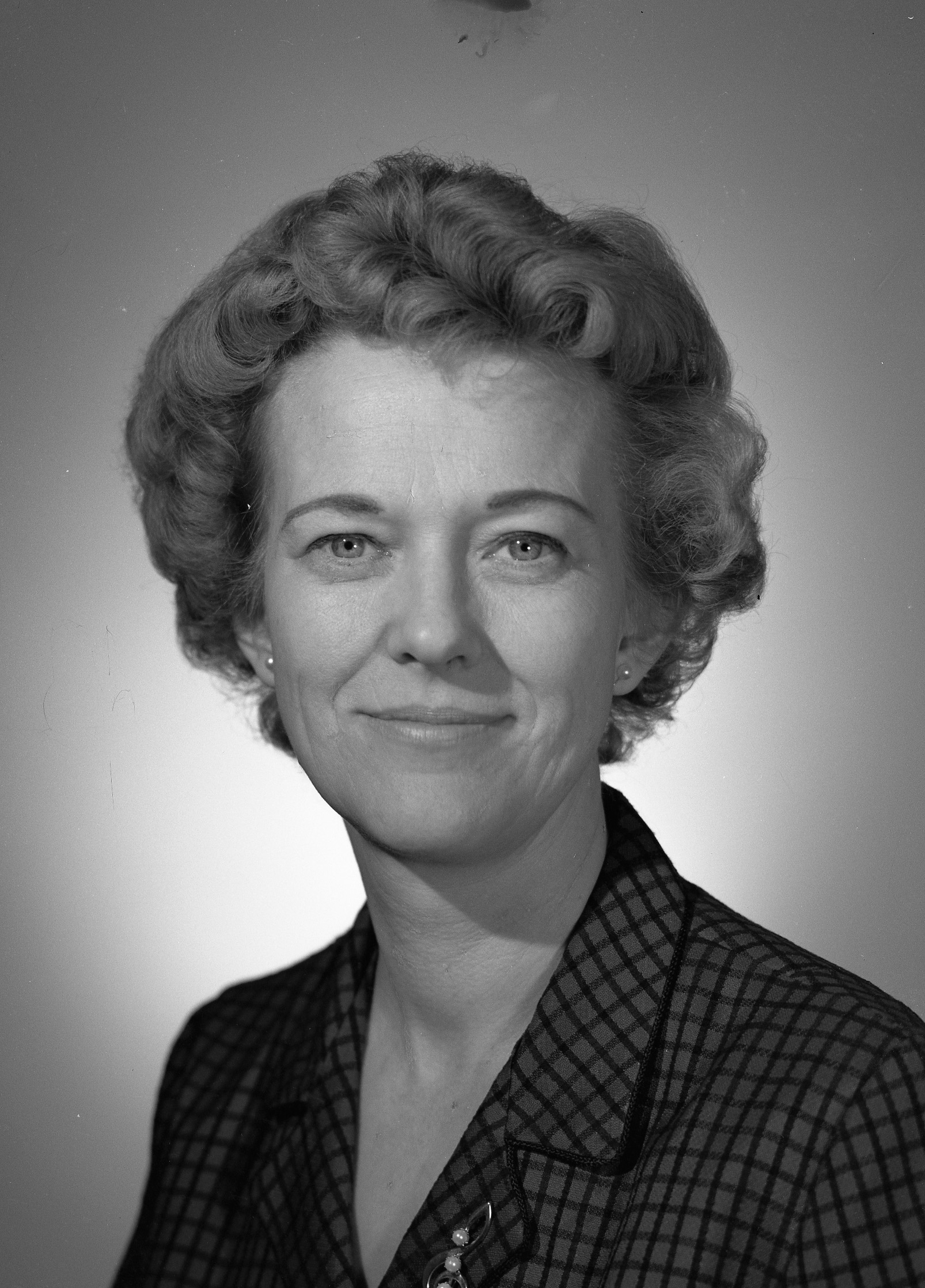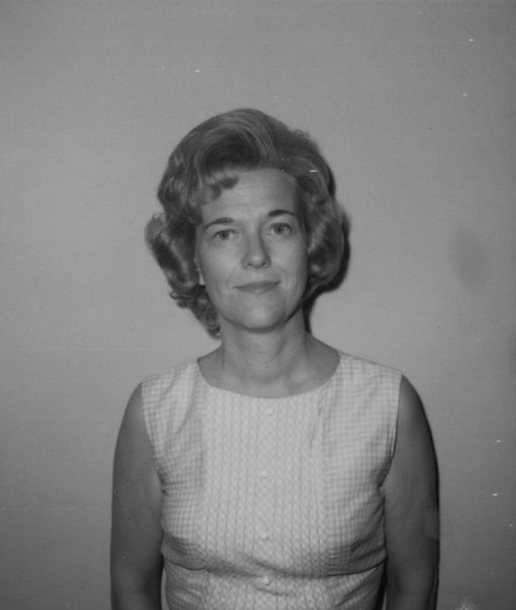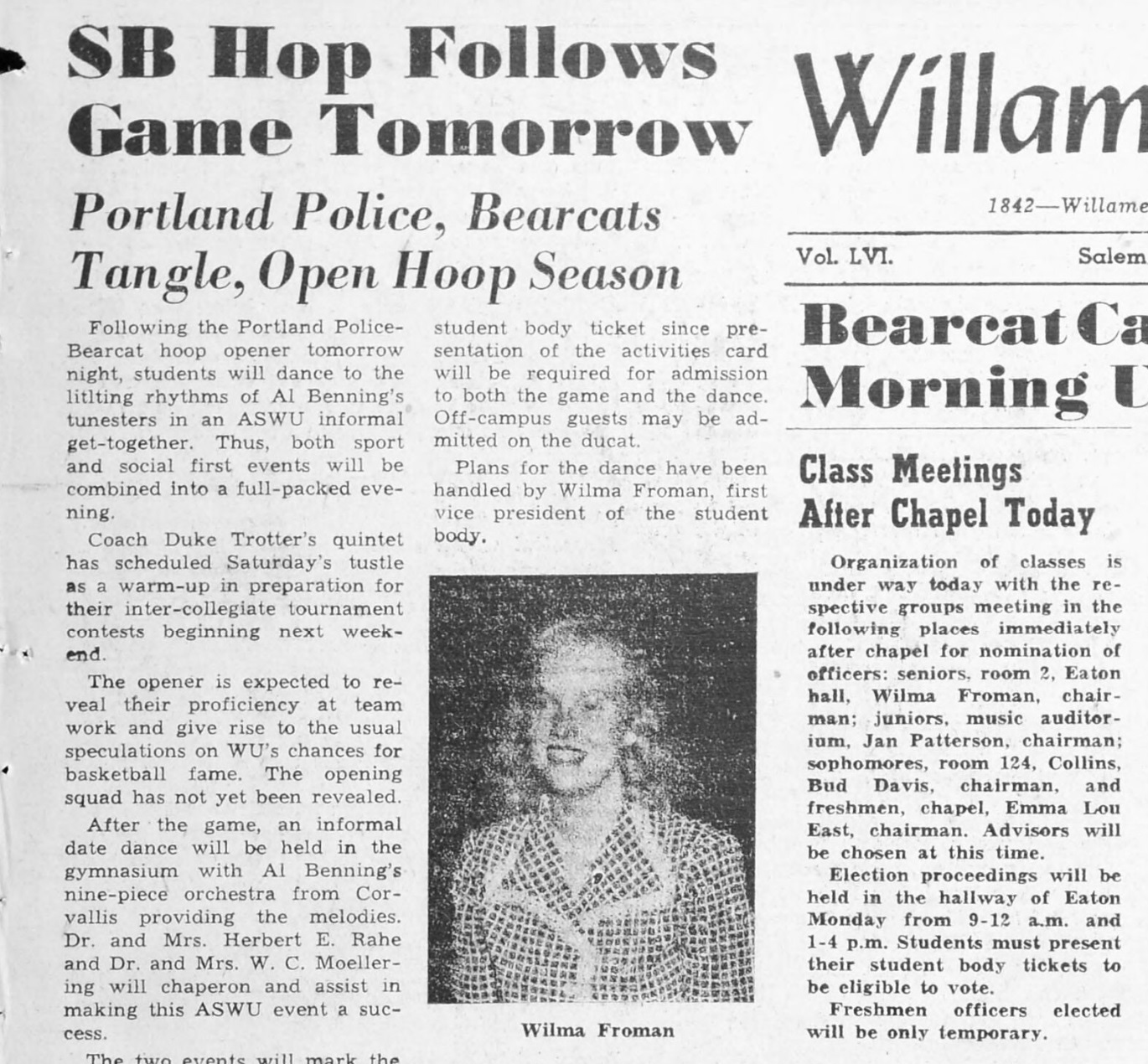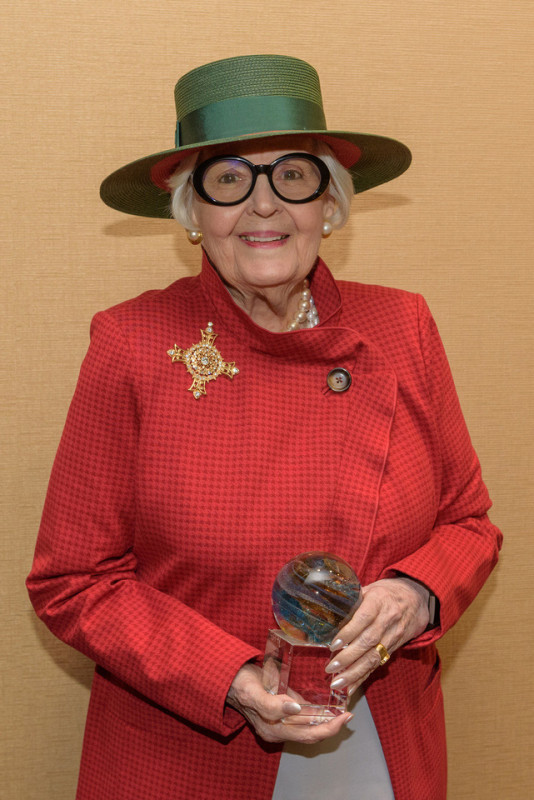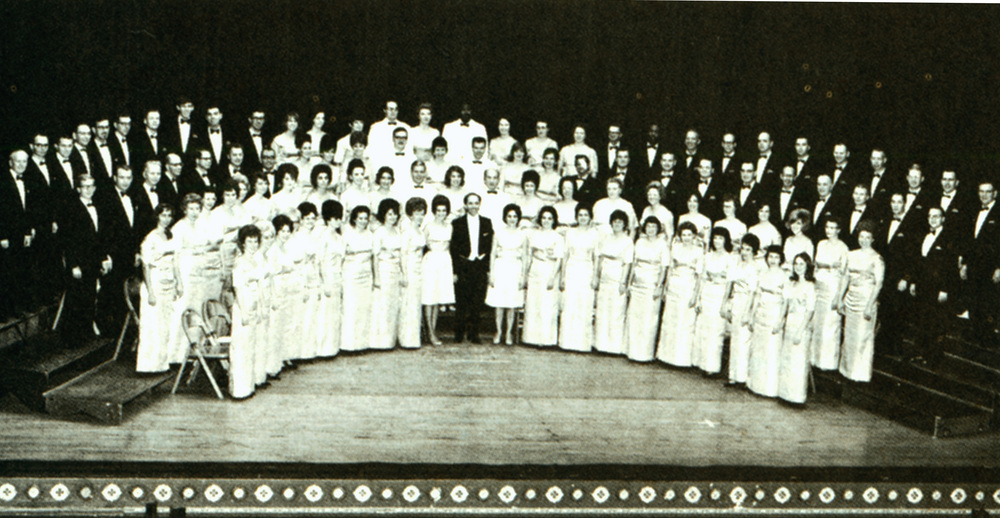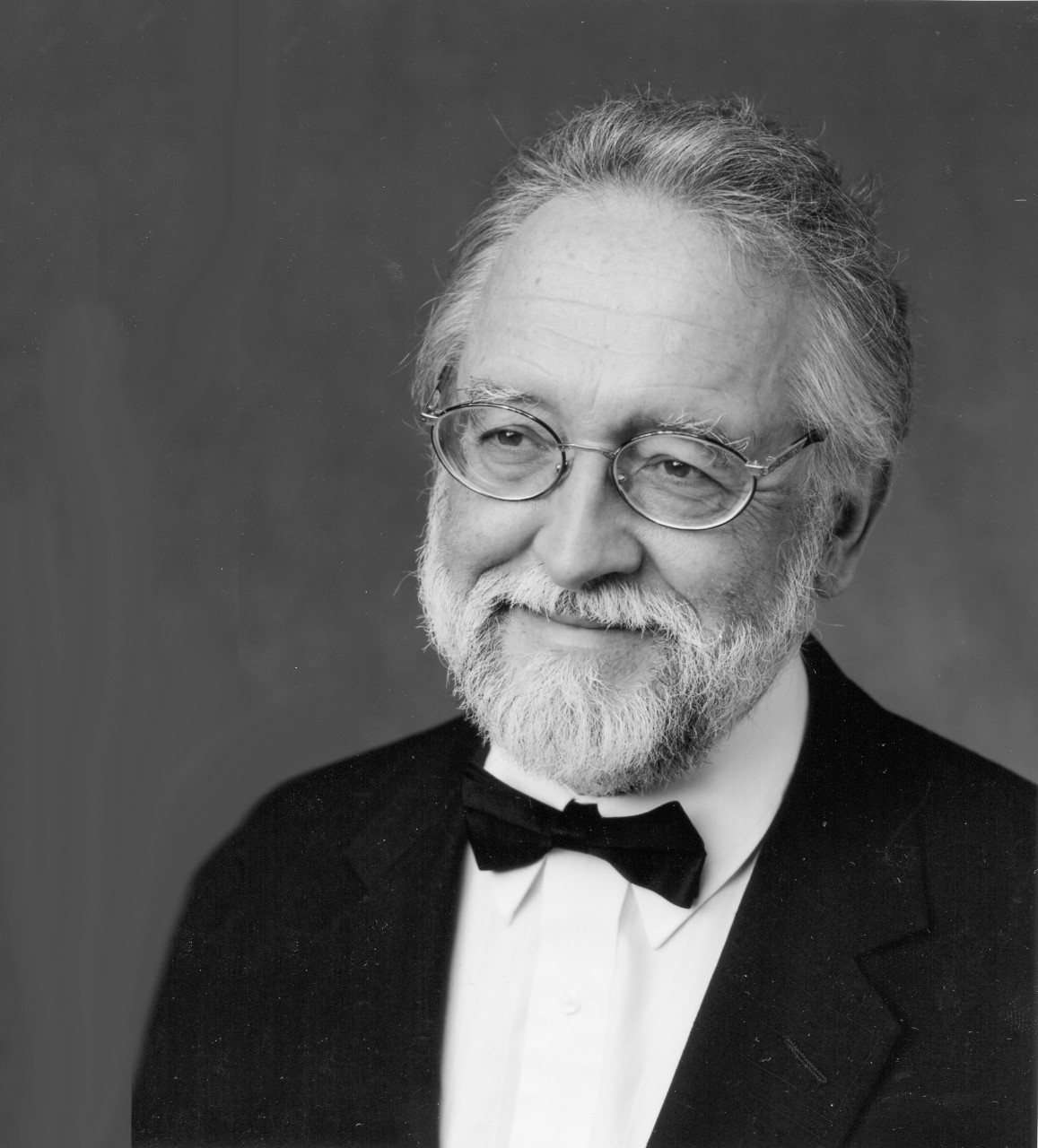Wilma Froman Sheridan was the first woman dean of a school within Portland State University. During her stewardship of the School of Fine and Performing Arts, from 1985 to 1991, she was a valuable leader and mentor to faculty and students. Throughout her career she was involved in community, state, and national music organizations and was noted for her expertise in integrating students with disabilities into the music classroom. Sheridan was a founding member of the Portland Orff Schulwerk Association and introduced Oregon teachers to composer Carl Orff’s approach to teaching music to children “through a mixture of singing, dancing, acting and the use of percussion instruments.”
Wilma Froman was born in Ashland on January 31, 1926, to Mary Evans and Carl Edwin Froman. She graduated from Ashland Senior High School before enrolling in Willamette University, where in 1945 she received a bachelor’s degree in music with concentrations in piano performance, choral directing, and composition—areas she focused on throughout her career. She completed a master’s degree in music education at Lewis & Clark College in 1955 and a Ph.D. in music education at the University of Oregon in 1979. Her dissertation on the “Development of the Oregon Plan for Mainstreaming in Music” focused on a pioneering project that trained elementary schoolteachers on how to include students with disabilities in music classrooms.
Froman married Robert Sheridan in 1946 and had three children. While her husband was in dental school, she taught piano at Washington State University and public school music in Everett, Washington, where she also performed with the Everett Chamber Orchestra and served as church organist. She was the submarine base choir director and performed in the Honolulu Symphony while Robert Sheridan was stationed in the U.S. Navy at Pearl Harbor. When the family moved to Portland in 1954, she taught music in the public schools (1954–1969) and at Lewis & Clark College (1955–1961).
Throughout her working life, Sheridan attended workshops on Carl Orff, Zoltán Kodály, and the Manhattanville Music Curriculum Project. She took choir seminars in conducting and volunteered to teach music to students with disabilities at Westside School in Portland. Her articles about effective teaching strategies appeared in state and national professional journals, and she presented papers at conferences in Oregon, Utah, and Canberra, Australia.
In 1971, Sheridan began her tenure at Portland State University as an adjunct instructor in elementary teaching methods. She was promoted several times from 1971 to 1980 and taught classes that included piano, teaching methods, choral arranging, and music history. She developed and taught a course for exceptional children. In 1984, she was a visiting instructor of music at the University of Calgary in Alberta, Canada.
Sheridan served as the head of the Music Department from 1980 until 1985, when she was appointed dean of the PSU School of Fine and Performing Arts, which included the departments of music, art, architecture, and theater arts. Stan Stanford, Music Department chair when she was dean, remembered that Sheridan “created a non-threatening atmosphere that allowed those under her tutelage to thrive. I never saw anyone more skilled at releasing tension and solving problems. Under her leadership the arts flourished at PSU.” During her tenure, she secured a five-year grant for visiting artists for the school, put the Bachelor of Music degree in place, raised funds for five opera productions, and found grant money for a large electronic piano laboratory.
Sheridan was on the board of directors of several organizations, including the Community Music Center, the Portland Symphonic Choir, the Christensen Foundation, and Willamette University Alumni. She was a member of the Music Committee of the Greater Portland Council of Churches and Lay Leader of the Rose City Park United Methodist Church. She held memberships in seven national and international music organizations and served as chair of the Oregon Music Education Association in College Affairs and in General Music and Humanities. She was also chair of Region II of the National Association of Schools of Music. For years she was active in the national Mu Phi Epsilon Music Fraternity and was named its Woman of the Year in 1989.
On Sheridan’s retirement from the university in 1991, the PSU Alumni Association awarded her the Distinguished Faculty Service Award in recognition of her “extraordinary contributions to the University and to the Portland community.” Sheridan passed away on December 15, 2023, at the age of ninety-seven.
-
![]()
Wilma Sheridan.
Courtesy Portland State University -
![]()
Wilma Sheridan.
Courtesy Lewis and Clark College -
![]()
Wilma Froman (Sheridan), Willamette Collegian, 1944.
Courtesy Willamette University
Related Entries
-
![Antoinette Marie Kuzmanich Hatfield (1929–)]()
Antoinette Marie Kuzmanich Hatfield (1929–)
Antoinette Hatfield’s talents and sense of style and her support of the…
-
![Darrell Grant (1962–)]()
Darrell Grant (1962–)
A pianist, vocalist, composer, and educator, Darrell Grant arrived in P…
-
![Friends of Chamber Music]()
Friends of Chamber Music
Friends of Chamber Music is the oldest continuously operating chamber m…
-
![Portland State University]()
Portland State University
Located in downtown Portland, Portland State University is Oregon’s urb…
-
![Portland Symphonic Choir]()
Portland Symphonic Choir
Struck by Portland's lack of a civic chorus, C. Robert Zimmerman decide…
-
![S. John Trudeau (1927-2008)]()
S. John Trudeau (1927-2008)
Simeon John Trudeau Jr. was a major contributor to the musical life and…
-
![Tomas Svoboda (1939-2022)]()
Tomas Svoboda (1939-2022)
Tomáš Svoboda was an internationally renowned composer, performer, prof…
Map This on the Oregon History WayFinder
The Oregon History Wayfinder is an interactive map that identifies significant places, people, and events in Oregon history.

